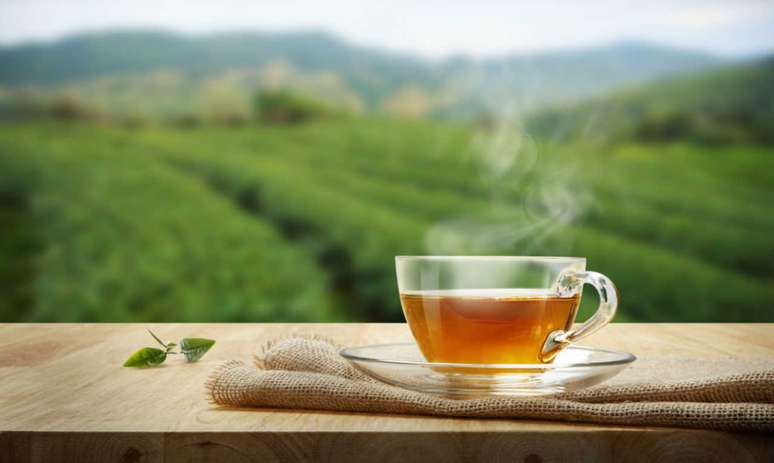On the occasion of International Tea Day, a nutritionist explains the main facts and myths associated with the benefits of the drink
Tea is a very ancient drink, so important to the history of humanity that it has a date of its own. Recently, in 2019, the FAO, a specialized agency of the United Nations, recognized May 21 as International Tea Day.
The drink, prepared with an infusion of leaves, flowers and roots of plants, can be consumed hot or cold, for breakfast and meals. Some even before going to bed. On the coldest days of the year, warm options are especially welcome.
Tea consumption can be tied to personal taste or a specific goal, such as strengthening the immune system or losing weight. But does the drink really work in these cases? Nutritionist Dr. Nataniel Viuniski, member of the Advisory Board of Herbalife do Brasil, clarifies these and other doubts. Check:
1 – Do herbal teas help you lose weight?
Some teas are rich in substances that temporarily speed up the metabolism, known as a thermogenic effect. This is the case of green tea, black tea, ginger tea, cinnamon tea, among others.
“They help to moderately accelerate fat burning and are slightly diuretic, so they help eliminate fluids retained in the body. But it is important to underline that the effect on body weight will only be achieved together with a balanced diet and physical exercise”, explains the doctor.
Another positive point is that these drinks help to increase the consumption of liquids, promoting the hydration of our body.
2 – How to consume thermogenic tea?
Since most thermogenic teas contain caffeine in their composition, it is ideal to consume them during the day. That is, until 4pm, so as not to disturb your sleep.
“The intervals between meals are strategic moments to include thermogenic herbal teas with the aim of increasing energy and disposition. But they can also be ingested before physical exercise, contributing to a good performance. This is because caffeine can help postpone the feeling of tiredness, keeping the athlete active for longer”, explains the nutritionist.
3 – How many times a day is it advisable to drink thermogenic drinks containing caffeine?
There is a big difference in individual sensitivity to caffeine: more sensitive people may experience some discomfort with small doses while others can ingest larger quantities without problems.
But, in general, Anvisa (National Health Surveillance Agency) recommends a daily intake of up to 400 mg of caffeine, up to 200 mg at a time. It is therefore important to pay attention to the recommendations on the product label and evaluate the amount of caffeine that each drink offers per serving, underlines the professional.
4 – What other benefits do teas offer?
According to the nutritionist, green and black teas, for example, contain flavonoids and phytonutrients rich in antioxidants. These nutrients protect cells from the damaging actions of free radicals, helping to fight inflammation in the body. In this way, herbal teas improve some brain functions, such as attention and memory, and help prevent cardiovascular diseases and their risk factors.
Other herbs, such as chamomile and fennel, also have antioxidant action, but without caffeine. They therefore help promote relaxation and contribute to restful sleep, as well as helping to improve the digestive system, explains Nataniel.
5 – Do herbal teas have contraindications?
Anyone with caffeine sensitivities or restrictions due to health conditions (such as pregnancy, breastfeeding or gastritis, for example) should adjust their intake according to the recommendations of their doctor and/or nutritionist. You also need to remember that the response and tolerance to caffeine can vary from person to person.
Source: Terra
Ben Stock is a lifestyle journalist and author at Gossipify. He writes about topics such as health, wellness, travel, food and home decor. He provides practical advice and inspiration to improve well-being, keeps readers up to date with latest lifestyle news and trends, known for his engaging writing style, in-depth analysis and unique perspectives.





![It All Begins Here: What’s in store for Monday 20 October 2025 Episode 1288 [SPOILERS] It All Begins Here: What’s in store for Monday 20 October 2025 Episode 1288 [SPOILERS]](https://fr.web.img4.acsta.net/img/61/5b/615b86ae565677594436e6cf1c0294ba.jpg)



